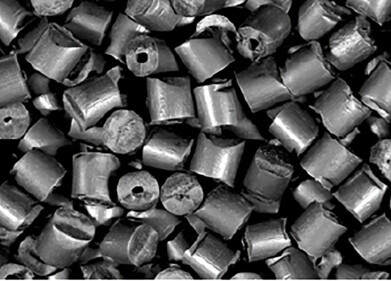Biofuel Industry News
What is a Hydrocarbon?
Feb 19 2021
Climate change has forced the world to reconsider its energy sources and hydrocarbons have been thrown into the spotlight. Made up of hydrogen and carbon atoms, the organic chemical compounds underpin resources such as crude oil, natural gas and coal. Below, we take a closer look at hydrocarbons, exploring where they come from, how they’re used and what’s ahead for the industry.
The origins of hydrocarbons
While hydrocarbons are highly criticised for their environmental impact, they’re actually a naturally occurring resource. They’re found around the world and were formed by ancient plant and animal fossils that have been transformed by the forces of weight and temperature over tens of millions of years. Most hydrocarbon sources are located deep underground, trapped in porous rock formations such as shale, limestone and sandstone. Some of these porous rock formations are located on land, while others are found deep beneath the ocean floor.
Extracting hydrocarbons
Humans have been extracting hydrocarbons from the earth for hundreds of years. While research suggests coal was used as a fuel resource as early as 1000 BC it wasn’t until the Industrial Revolution in the 1800s that it was embraced as a key source of energy, replacing wood. After coal came the oil and gas boom. Companies began to develop advanced new techniques for identifying hydrocarbon-rich deposits and extracting resources. This includes pumpjacks used at oil wells, offshore oil platforms, hydraulic fracking, horizontal drilling and enhanced oil recovery (EOR) techniques.
Uses for hydrocarbons
Highly combustible, hydrocarbons produce carbon dioxide, water and heat when burned. This makes them a highly effective fuel source for powering cars, machinery and other energy-intensive applications. While effective, over the past few years the environmental cost of hydrocarbons has started to cause concern. Since the pre-industrial era average global temperatures have increased by two degrees Celsius, a rise that’s been fuelled largely by the release of carbon dioxide into the atmosphere.
The future of hydrocarbons
So what’s ahead for hydrocarbons? While they will continue to remain relevant for some time, the transition towards more sustainable energy sources such as solar, wind and geothermal power will soon takeover. Countries such as the United Kingdom have pledged to ban the sale of new petrol and diesel cars by 2030 in a bid to slash emissions and combat climate change. This will drastically reduce demand for hydrocarbons and force companies to focus on renewables.
Find out more about what’s being done to combat climate change in ‘The Prospective Approaches to Limit Global Carbon Emissions and the Adverse Effects of Gaseous CO2’ featuring insight from Dr. Raj Shah on behalf of Koehler Instrument Company
Digital Edition
PIN 25.2 Apr/May
April 2024
In this Edition Safety - Carbon monoxide toxic and flammable gas detection Analytical Instrumentation - Density: A fundamental parameter at critical stages within the petroleum sector...
View all digital editions
Events
May 03 2024 Seoul, South Korea
May 05 2024 Seville, Spain
May 06 2024 Riyadh, Saudi Arabia
May 06 2024 Houston, Tx, USA
May 06 2024 Houston, Tx, USA


















